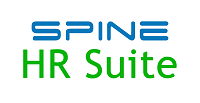Description

Remote

Payroo Payroll
Comprehensive Overview: Remote vs Payroo Payroll
As of my last update in October 2023, here's a comprehensive overview of Remote and Payroo Payroll, focusing on their primary functions, target markets, market share, user base, and differentiating factors.
Remote
a) Primary Functions and Target Markets
- Primary Functions: Remote is a global employment platform that helps businesses manage international payroll, benefits, taxes, and compliance for employees and contractors worldwide. The platform enables companies to hire and pay people in different countries while ensuring compliance with local labor laws.
- Target Markets: Remote primarily targets small to large enterprises across various industries that have a need to hire talent internationally. It appeals especially to tech companies, startups, and businesses embracing remote work policies.
b) Market Share and User Base
- Remote has established itself as a significant player in the rapidly growing market for global payroll and employment solutions, particularly due to the increasing demand for remote work. While specific market share data might not be publicly available, its rapid growth and substantial funding rounds suggest a significant presence in the global employment services segment.
- User base details are typically proprietary, but the company's popularity and market expansion efforts hint at a sizable and diverse clientele.
c) Key Differentiating Factors
- Global Compliance: Remote emphasizes compliance with local labor laws across different countries, which is crucial for businesses operating in multiple jurisdictions.
- Ease of Use: The user-friendly interface and seamless integration with existing systems make it an attractive choice for businesses.
- Comprehensive Services: Beyond payroll, Remote offers HR and legal support, benefits administration, and contractor management, making it a one-stop-shop for international employment solutions.
Payroo Payroll
a) Primary Functions and Target Markets
- Primary Functions: Payroo is a payroll software solution that focuses on providing efficient and comprehensive payroll processing services. It includes automatic PAYE calculations, pension management, and real-time payment processing for UK businesses.
- Target Markets: Payroo primarily targets small to medium-sized businesses (SMBs) in the UK that require simple and cost-effective payroll processing solutions.
b) Market Share and User Base
- Payroo is a recognized brand within the UK payroll software market, primarily serving domestic businesses. While it may not have the expansive reach or scale of multinational solutions, it is well-regarded among UK SMBs looking for reliable and straightforward payroll services.
- The user base includes thousands of small businesses and accounting firms in the UK who prefer a solution that caters specifically to local employment and tax regulations.
c) Key Differentiating Factors
- Local Focus: Payroo's specialization in the UK market and compliance with UK regulations makes it a go-to solution for businesses in need of domestic payroll services.
- Affordability: Priced competitively for SMBs, Payroo provides a cost-effective solution without overcomplicating payroll management.
- Simplicity: The platform is designed to be intuitive and straightforward, ideal for small businesses that may not have dedicated payroll staff.
Comparison
- Scope and Scale: Remote has a broader global focus, supporting international payroll needs, while Payroo settles into a niche with UK-based SMBs.
- Complexity and Features: Remote offers a myriad of features tailored for complex global operations, whereas Payroo simplifies payroll processing without unnecessary features for its target market.
- Market Strategy: Remote aggressively pursues international markets and remote-work-driven companies, whereas Payroo maintains its position within the UK, emphasizing compliance and cost-efficiency.
Both Remote and Payroo Payroll cater to different segments of the market based on company size, location, and payroll complexity. Understanding these differences helps businesses choose the solution that best fits their operational needs.
Contact Info

Year founded :
1999
Not Available
Not Available
United Kingdom
Not Available

Year founded :
Not Available
Not Available
Not Available
Not Available
Not Available
Feature Similarity Breakdown: Remote, Payroo Payroll
Remote and Payroo Payroll are both platforms designed to facilitate payroll and HR operations, but they cater to somewhat different audiences and have unique features. Here's a comparative breakdown based on your criteria:
a) Core Features in Common
-
Payroll Processing: Both platforms offer payroll processing capabilities, allowing users to manage salaries, hourly wages, deductions, taxes, and other payroll-related tasks seamlessly.
-
Automated Tax Calculations: They include automated tax calculations to ensure compliance with local regulations, thus reducing the burden on HR teams.
-
Direct Deposit: This is a standard payroll feature that both services provide, allowing for the direct deposit of salaries into employees' bank accounts.
-
Reporting and Analytics: Both platforms provide payroll reports and analytics, enabling businesses to gain insights into their payroll expenses and other relevant metrics.
-
Compliance Management: Ensuring compliance with employment laws is crucial, and both Remote and Payroo include tools to help manage this aspect effectively.
-
Employee Self-Service: Both offer employee self-service portals where employees can view their payslips and manage personal information related to payroll.
b) User Interface Comparison
-
Remote: Known for its modern and intuitive interface, Remote tends to focus on simplicity and user-friendliness. The design is clean, with a dashboard that provides a clear overview of all relevant HR and payroll features. Navigation is straightforward, and the use of visuals improves the user experience.
-
Payroo Payroll: While also functional, Payroo may have a more utilitarian approach compared to Remote. It's effective but might not be as sleek or visually appealing as Remote's interface. It is often noted for its straightforward approach, focusing heavily on functionality over form, which might appeal to users who prefer a no-frills experience.
c) Unique Features
-
Remote:
- Global Employment Solutions: Remote stands out with its comprehensive global employment solutions. It supports hiring and managing employees from multiple countries, handling international payroll, benefits, taxes, and compliance with ease.
- Contractor Management: The platform offers features specifically tailored for managing international contractors, which can be a significant benefit for businesses with a global remote workforce.
- Benefits Management: Remote provides robust benefits management tools that are tailored to the needs of multinational teams.
-
Payroo Payroll:
- Focus on UK Payroll: Payroo is particularly tailored for UK-based businesses, with features that focus on compliance with UK tax laws and regulations, which makes it particularly advantageous for companies operating within the UK.
- Free Payroll Software: Payroo offers a free version of its payroll software for small businesses, which can be a great open for budget-conscious companies or those just starting out.
Overall, while both platforms offer solid payroll processing capabilities, Remote is better suited for companies seeking a unified solution for managing a global workforce, whereas Payroo would often be more appealing for UK-based small to medium businesses seeking straightforward payroll services.
Features

Not Available

Not Available
Best Fit Use Cases: Remote, Payroo Payroll
Remote
a) Best Fit Use Cases for Remote:
-
Distributed Teams:
- Type of Business: Companies that operate with teams spread across multiple countries.
- Projects: Ideal for projects requiring global collaboration, remote work, and international expertise.
-
International Hiring:
- Type of Business: Startups, tech companies, or any enterprises looking to hire talent globally without establishing physical offices in each location.
- Projects: Works well for businesses expanding into new markets or needing specialized skills available internationally.
-
Complex Compliance Needs:
- Type of Business: Companies concerned with adhering to different employment laws and regulations across countries.
- Projects: Suitable for projects that have strict compliance requirements and need meticulous handling of international payroll, benefits, and labor laws.
-
Scalability:
- Type of Business: Fast-growing businesses requiring rapid scaling of their workforce globally.
- Projects: Expansion projects that require a quick setup of employment contracts, local benefits, and tax handling across multiple jurisdictions.
Payroo Payroll
b) Preferred Scenarios for Payroo Payroll:
-
Small to Medium-Sized Enterprises (SMEs):
- Type of Business: UK-based small and medium-sized enterprises that need a straightforward, cost-effective payroll solution.
- Projects: Best for businesses that focus on local operations and require a reliable, easy-to-use payroll service tailored to UK regulations.
-
Cost Sensitivity:
- Type of Business: Small businesses or startups with limited budgets.
- Projects: Ideal for projects where cost management is critical and there's a need for a minimal yet effective payroll processing tool.
-
Simplicity and Ease of Use:
- Type of Business: Businesses looking for no-fuss payroll solutions that are easy to set up and manage without complex features.
- Projects: Suitable for companies that prefer simplicity over advanced functionalities and want to manage payroll with little effort.
Industry Verticals and Company Sizes
d) Catering to Different Industry Verticals or Company Sizes:
-
Remote:
- Industry Verticals: Tech, finance, consulting, and any sector that relies heavily on international talent or has decentralized operations.
- Company Sizes: From startups aiming for global reach to large enterprises with established international operations. Remote supports expansion and legal compliance across various industries.
-
Payroo Payroll:
- Industry Verticals: Local retail, small service providers, hospitality, and any sector with straightforward payroll needs focused on the UK.
- Company Sizes: Typically targets small to medium-sized companies in the UK that need economical and hassle-free payroll management solutions. Payroo is effective for any industry where there is no need for complex payroll processing or international compliance.
Overall, Remote and Payroo Payroll serve different segments of the market, with Remote focusing on international and compliant payroll solutions for distributed teams, while Payroo Payroll offers a simple and affordable payroll service tailored to the needs of UK-based SMEs.
Pricing

Pricing Not Available

Pricing Not Available
Metrics History
Metrics History
Comparing undefined across companies
Conclusion & Final Verdict: Remote vs Payroo Payroll
To provide a conclusion and final verdict for Remote and Payroo Payroll, we must assess their values, weigh their pros and cons, and offer recommendations based on user needs.
a) Best Overall Value
Remote generally offers better overall value for businesses with a global workforce seeking a comprehensive employee management platform. It excels in simplifying international hiring, compliance, and payroll processes. Payroo Payroll, on the other hand, is better suited for UK-based small to medium-sized enterprises (SMEs) looking for a cost-effective and straightforward payroll solution.
b) Pros and Cons
Remote
-
Pros:
- Global Reach: Facilitates international hiring and compliance, making it ideal for companies with remote teams spread across multiple countries.
- Comprehensive Services: Offers inclusive services covering payroll, benefits, taxes, and compliance.
- Ease of Use: User-friendly interface with integrated tools for seamless HR operations.
-
Cons:
- Price: Higher pricing could be a barrier for smaller businesses or those with limited budgets.
- Complex Features: May be overwhelming for companies with straightforward payroll needs.
Payroo Payroll
-
Pros:
- Cost-Effective: Affordable solution for small businesses focused primarily on processing payroll.
- Compliance: Tailored to meet UK HMRC requirements, ensuring payroll accuracy and compliance.
- Simple Interface: Easy to set up and use, particularly for users without extensive HR backgrounds.
-
Cons:
- Limited Global Capabilities: Primarily designed for the UK market, lacking features for handling international employees.
- Basic Features: May not meet the needs of businesses requiring extensive HR management solutions beyond payroll.
c) Specific Recommendations
-
For Businesses with Global Teams: Opt for Remote. Its robust international features and compliance support make it a strategic choice for managing diverse workforces worldwide.
-
For UK-Based SMEs: Choose Payroo Payroll. Its focus on the UK market, affordability, and straightforward functionality align well with the needs of smaller businesses focused on cost-effective payroll processing.
-
Dual Consideration: For businesses operating in both local and international contexts, consider integrating Remote for global operations while utilizing Payroo Payroll's local expertise for UK-specific needs.
Ultimately, the decision should hinge on your business size, geographical reach, budget constraints, and specific HR/payroll requirements.
Add to compare
Add similar companies



